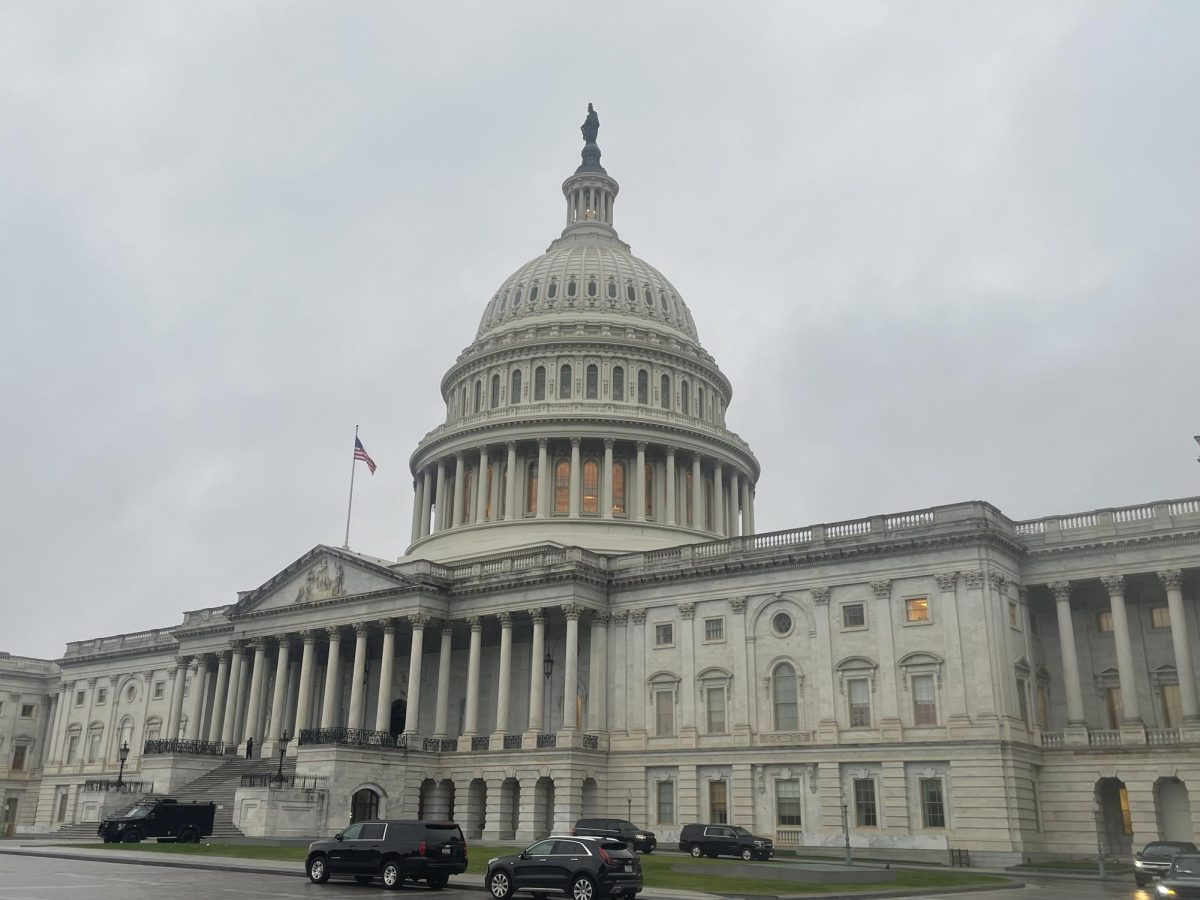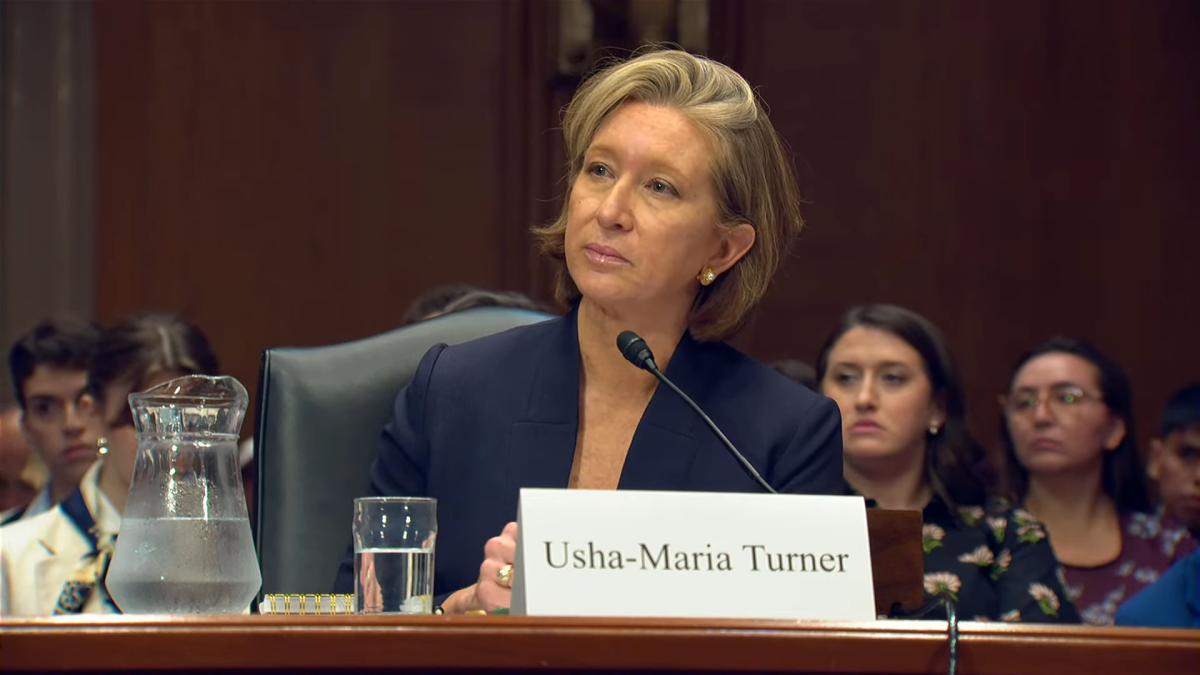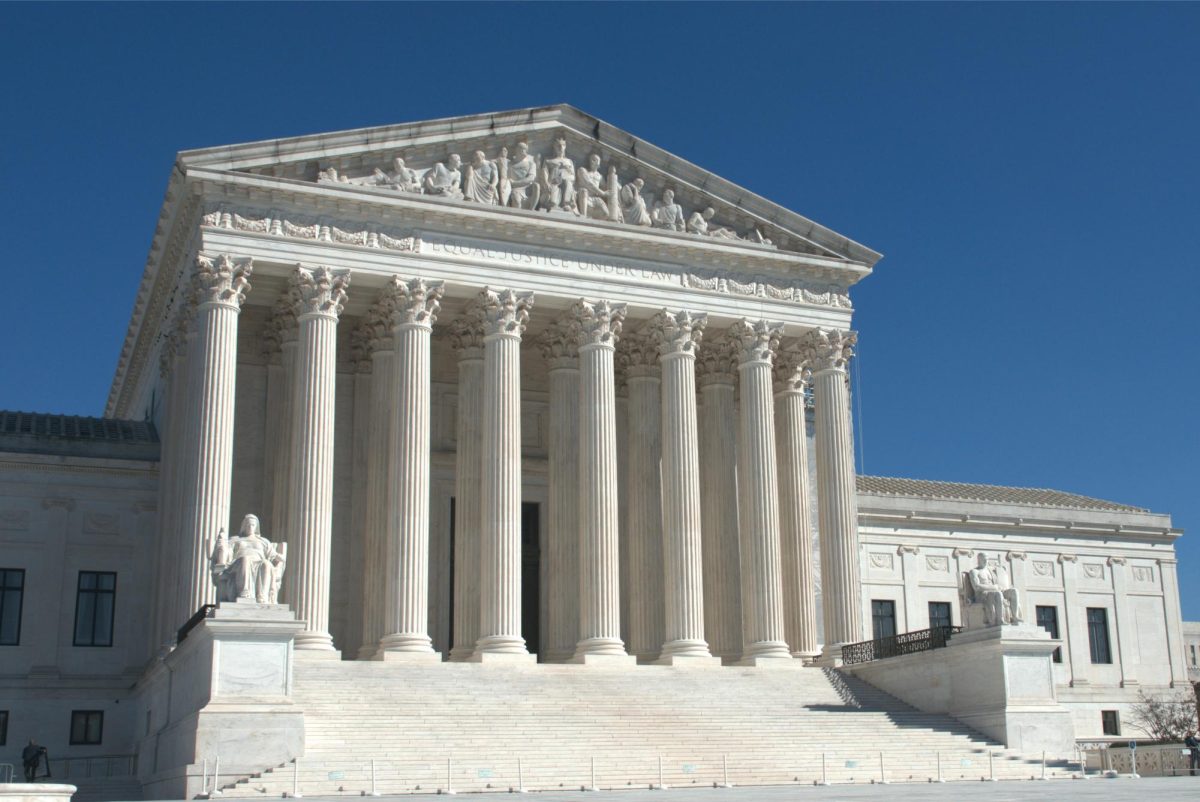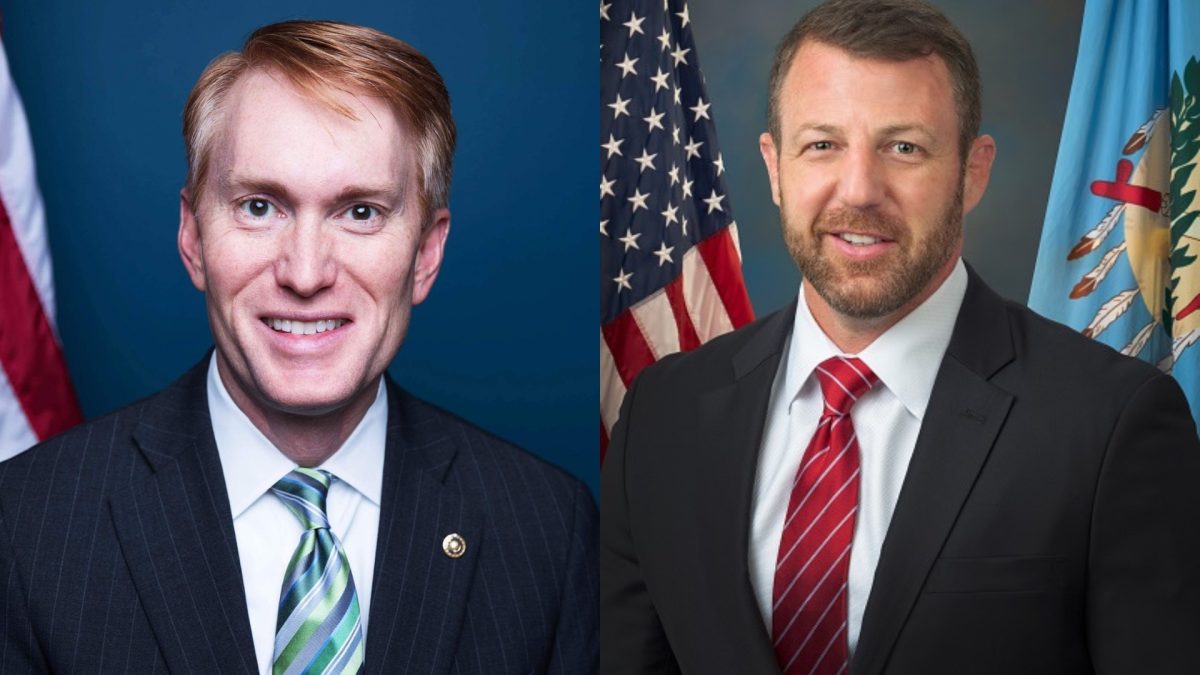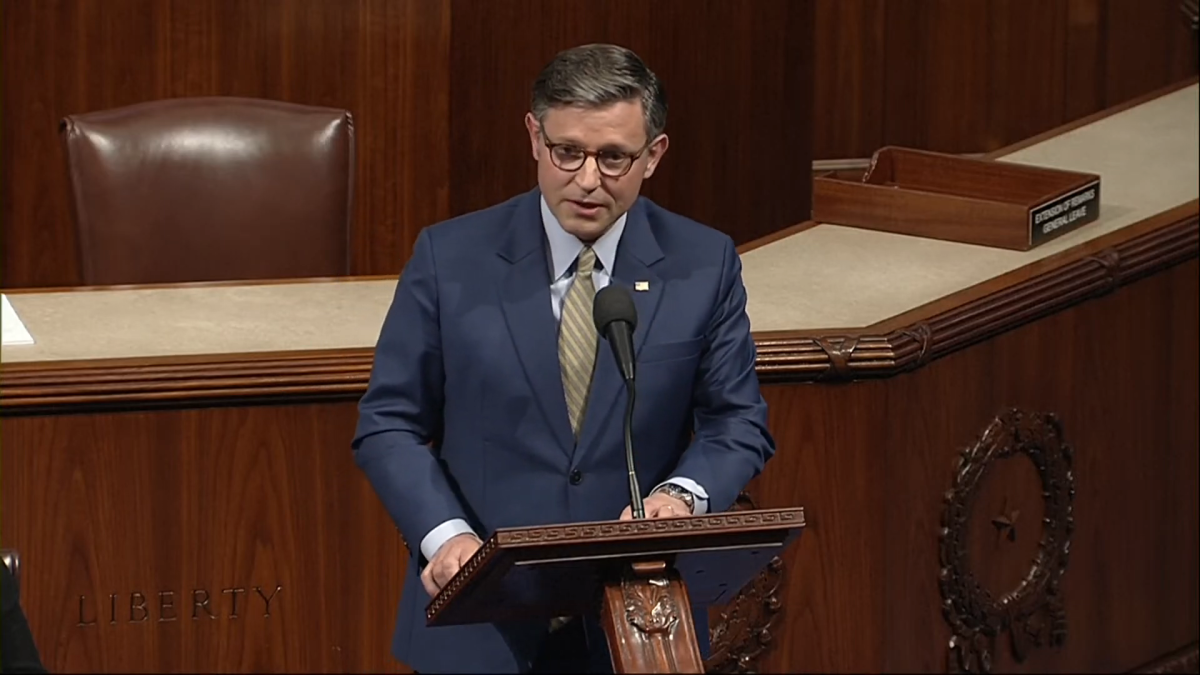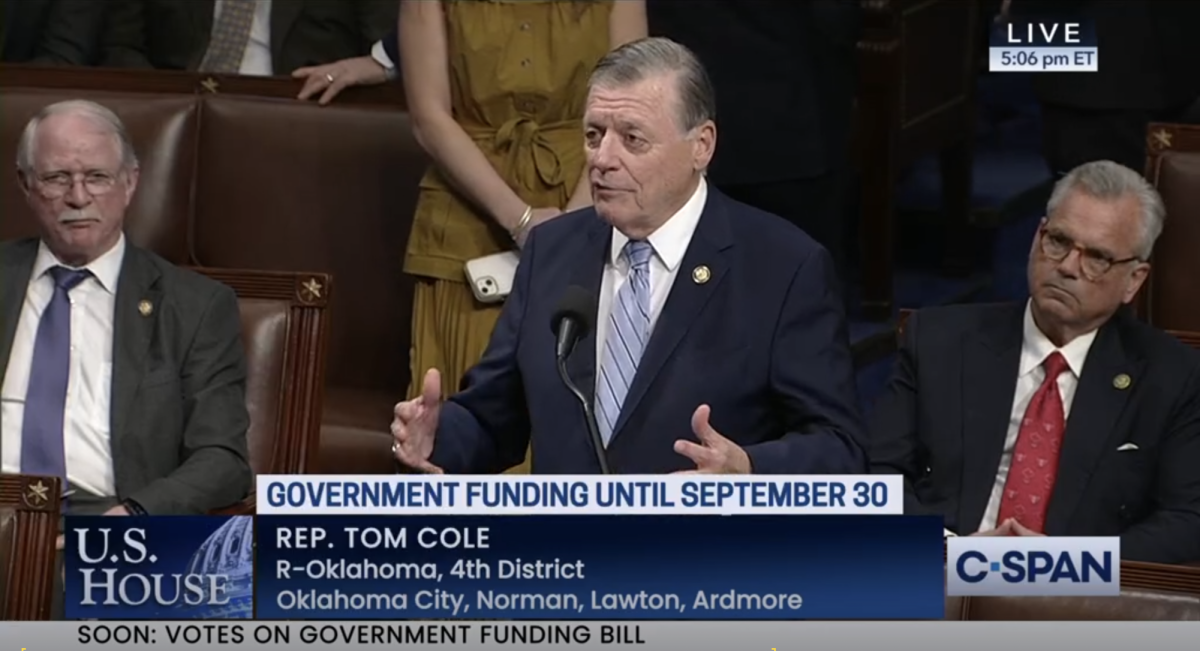After weeks of delays, a failed vote on a previous spending bill and a looming government shutdown, Congress passed a bipartisan spending bill to keep government funding flowing at its current level through December 20.
The bill originated in the House and passed overwhelmingly 341-82 with support from the Democratic Party, the majority of the Republican Party and most of the Oklahoma House delegation. Only Rep. Josh Brecheen (R, Ada) voted against the spending bill.
The bill passed in the Senate 78-18, with Sen. Markwayne Mullin (R-Westville) voting against the spending bill. Senator James Lankford (R-Oklahoma City), voted in favor of the spending bill.
If the bill, sponsored by House Appropriations Chairman Rep. Tom Cole (R-Moore), had not passed Congress would have had until midnight Monday to pass a spending bill otherwise the government would have shutdown.
“In a matter of days, funding for Fiscal Year 2024 will run out, and it is Congress’s responsibility to ensure that the government remains open and serving the American people. We are here to avert harmful disruptions to our national security and the vital programs our constituents rely on,” Cole said on the House floor while speaking in support of the measure.
“Despite House Republican’s strong momentum, time is drawing short, and our colleagues in the Senate – who have yet to pass a single Fiscal Year 2025 bill across the floor – have not kept pace with the House. It’s clear we are unable to complete the full appropriations process by September 30th. That means that a continuing resolution is needed.”
Sept. 30 marks the end of Fiscal Year 2024 and Congress has failed to construct a budget for Fiscal Year 2025, making the spending bill, or continuing resolution necessary. Congress will now have until Dec. 20 to form and pass a budget for Fiscal Year 2025.
Congress has not completed a budget on time since 1996.
Following the vote, Brecheen released a statement in which he said he could not vote for the spending bill given the current level of federal debt. He said the bill maintains high levels of spending that must be reduced.
The House Freedom Caucus, which Brecheen is a member of, had previously put out a statement that said a spending bill should include the SAVE Act, which required voters to prove they are citizens when they register to vote, and continue government funding for six months.
Rep. Stephanie Bice (R-Oklahoma City) voted in favor of the bill and said in a statement that while the bill is imperfect and not what she would have preferred, the clock had run out and she could not in good conscience vote to shutdown the government.
In a statement released after the vote, Rep. Kevin Hern (R, Tulsa) said he had supported shutdowns in the past as an alternative to continuing the status quo in Congress of spending taxpayer money with no respect but that today was not the day to do so.
Mullin, who voted against the spending bill, released a statement following the vote in which he blamed Senate Majority Leader, Chuck Schumer (D-NY), for not brining appropriations bills to the Senate floor. Mullin went on to say it is past time for Congress to get its priorities straight.
After the vote, Schumer released a statement following the passage of the spending bill that said Americans can sleep easier tonight knowing the government will remain open. He also blamed House Republicans for not working in with the Democrats earlier in the process.
The poison pill amendment was the SAVE Act which caused H.R. 9494 to fail on September 18, with the Democratic party opposing the act. The SAVE Act would have required individuals registering to vote in federal elections to provide documentation proving their U.S. citizenship.
House Minority Leader, Hakeem Jeffries, previously said the Democratic party would not support any spending bills with conservative policy riders.
In a post on Truth Social, former President Donald Trump wrote Republicans should not support any spending bill that does not include the SAVE Act.
With the final votes of the week taking place alongside the spending bill, Congress will begin a recess until mid-November. They will return home to campaign although most of the Oklahoma delegation is in a safe district. With the recess there will be little time for the 2025 budget to take shape before the December deadline.
Kevin Eagleson is reporting from Gaylord News’ Washington bureau this fall as part of an OU Daily scholarship.
Gaylord News is a reporting project of the University of Oklahoma Gaylord College of Journalism and Mass Communication. For more stories by Gaylord News go to GaylordNews.net

